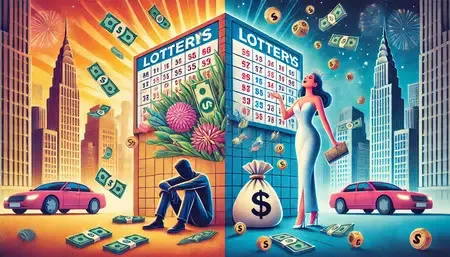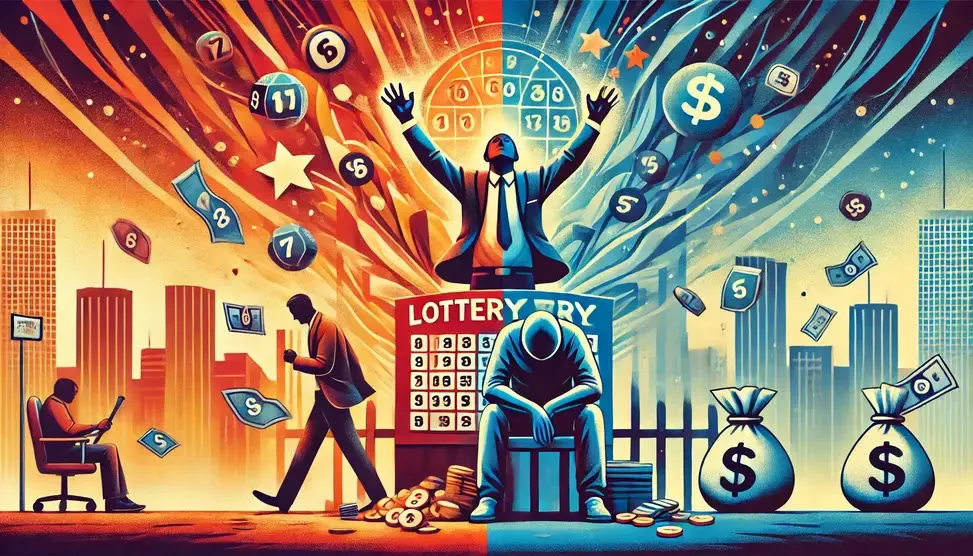
Impact of Lotteries on Society: Social and Economic Aspects
Lotteries have long been a subject of fascination and debate. While some view them as a harmless form of entertainment, others argue that they contribute to social and financial problems. The widespread popularity of lotteries has led to significant economic implications, both positive and negative, affecting individuals, communities, and governments alike. As gambling continues to evolve, with platforms such as Pasino casino providing modern gaming experiences, understanding the societal and financial impact of lotteries remains crucial.
The concept of lotteries dates back centuries, serving as a means to raise funds for public projects and charitable causes. Over time, they have transformed into a major industry, contributing billions of dollars to economies worldwide. Governments regulate and tax lotteries, using the proceeds to fund education, infrastructure, and other public services. However, while lotteries promise potential wealth, their effects on society extend beyond financial gains, influencing behavioural patterns and social structures.
With the rise of digital gambling, including casino Pasino and similar platforms, lottery participation has become more accessible than ever. The convenience of online lotteries, combined with enticing casino bonus code promotions, has increased the number of participants. This shift raises new questions about gambling habits, addiction risks, and the long-term consequences for individuals and society. To fully understand the role of lotteries, it is essential to examine their history, social impact, economic significance, and potential future developments.
History of Lotteries and Their Distribution
Lotteries date back to ancient times, with records of similar practices found in China, Rome, and Europe. The Han Dynasty in China (205–187 BCE) is believed to have used lottery revenues to fund significant projects such as the Great Wall. The Roman Empire also employed lotteries to distribute goods and land, and later, European rulers introduced national lotteries to raise funds for wars and public initiatives. This historical evolution laid the foundation for modern lotteries, transforming them into government-controlled enterprises.
By the 18th and 19th centuries, lotteries had become widespread in Europe and North America, playing a crucial role in funding infrastructure, universities, and social programs. However, concerns over fraud and addiction led to a wave of regulations and, in some cases, outright bans. Many lotteries were abolished or restricted due to ethical concerns, only to be revived in the 20th century under strict government oversight. Today, state-run lotteries exist in numerous countries, generating substantial revenue for public services.
Modern lotteries have expanded beyond physical tickets, with digital platforms offering global access to lottery-style games. Casino Pasino and other online gambling operators incorporate lottery-based games into their services, increasing consumer engagement. These digital adaptations have sparked debates on responsible gambling, as the ease of access could lead to increased gambling-related issues. While the industry continues to thrive, the regulatory landscape remains a key factor in shaping its future.

Social Aspects of Lotteries
Lotteries often promise life-changing wealth, yet their impact on social dynamics is complex. While some winners experience financial relief, others struggle with sudden wealth, leading to poor financial decisions and strained relationships. The idea of achieving wealth through luck can also influence societal attitudes towards financial responsibility, encouraging risk-taking over long-term planning.
Participation in lotteries is often linked to socioeconomic status. Studies suggest that lower-income individuals spend a higher proportion of their income on lottery tickets, hoping for financial security. This raises ethical concerns, as state-run lotteries generate significant revenue from populations that can least afford to lose money. Critics argue that lotteries function as a “tax on the poor,” exploiting economic desperation rather than providing meaningful opportunities.
Despite these concerns, lotteries also contribute to social welfare initiatives. A portion of lottery revenue is allocated to education, healthcare, and charitable programs, benefiting communities in tangible ways. Many countries justify lotteries as a voluntary means of funding essential services without increasing taxes. However, debates persist on whether these contributions outweigh the potential harm caused by gambling addiction and financial strain.
The psychological effects of lotteries extend beyond financial implications. The anticipation of winning, even when unlikely, triggers dopamine responses similar to other forms of gambling. This psychological reinforcement can lead to repeated participation, reinforcing gambling behaviours. As online platforms like casino Pasino introduce more accessible gambling options, understanding the social consequences of lottery participation becomes increasingly important.
Economic Importance of Lotteries
Lotteries contribute significantly to national and local economies. Governments rely on lottery revenue as a steady source of funding for public services, reducing reliance on direct taxation. These funds support education, infrastructure, and social programs, ensuring that a portion of gambling expenditure benefits the broader community.
In addition to public funding, lotteries create jobs in various sectors, including retail, marketing, and gaming technology. The expansion of digital lotteries and online casinos like Pasino casino has further boosted employment opportunities within the gambling industry. Developers, customer support specialists, and regulatory professionals all contribute to the industry’s economic footprint.
The indirect economic impact of lotteries extends to consumer spending patterns. Many winners invest in businesses, real estate, and personal luxuries, stimulating economic growth. However, research indicates that sudden wealth does not always lead to long-term financial stability, as many winners face financial difficulties within years. Proper financial education and planning remain essential to maximising the benefits of lottery winnings.
While the economic benefits of lotteries are evident, they are not without controversy. Critics argue that lottery revenue disproportionately comes from low-income players, exacerbating wealth inequality. Governments face ongoing challenges in balancing economic gains with ethical concerns, ensuring that lotteries serve as a responsible revenue source rather than a financial burden on vulnerable populations.
Problems and Criticisms of Lotteries
Despite their popularity, lotteries are often criticised for their role in promoting gambling addiction. Studies show that frequent lottery participation can lead to compulsive gambling behaviours, affecting financial stability and mental health. Problem gambling can result in debt accumulation, strained relationships, and reduced productivity, posing significant social challenges.
Another major criticism involves the regressive nature of lottery taxation. Since lower-income individuals tend to spend a larger percentage of their earnings on lottery tickets, lotteries effectively function as an indirect tax on the economically disadvantaged. Critics argue that governments should seek alternative revenue sources that do not disproportionately impact vulnerable populations.
Fraud and manipulation have also plagued lottery systems. Cases of rigged draws, insider winnings, and fraudulent schemes have damaged public trust in lottery organisations. To address these concerns, regulatory bodies enforce strict oversight, ensuring fair play and transparency in lottery operations. However, maintaining public confidence remains an ongoing challenge.
Lotteries also raise ethical questions about state involvement in gambling. While governments regulate and profit from lottery operations, they also bear responsibility for mitigating gambling-related harm. Balancing economic benefits with consumer protection requires continuous policy adjustments and responsible gambling initiatives.
The Future of Lotteries: Trends and Prospects
The future of lotteries is evolving alongside technological advancements. Digital platforms, blockchain-based lotteries, and artificial intelligence are reshaping how lotteries operate. Online lottery sales and instant-win games continue to expand, reaching a broader audience worldwide.
Regulatory frameworks are expected to adapt to new technological trends. Governments may introduce stricter responsible gambling measures while embracing innovation in lottery operations. Casino Pasino and similar platforms must navigate regulatory landscapes to ensure ethical and transparent gaming experiences.
Consumer behaviour is also shifting, with younger generations favouring interactive and skill-based gambling options. Traditional lottery models may need to adapt to remain relevant, incorporating gamification and personalised experiences to attract new players.
As lotteries continue to evolve, their social and economic impact remains a subject of debate. Whether viewed as a valuable revenue source or a controversial form of gambling, their influence on society is undeniable. Future developments will depend on responsible gaming policies, technological advancements, and public perception of lottery-based gambling.
